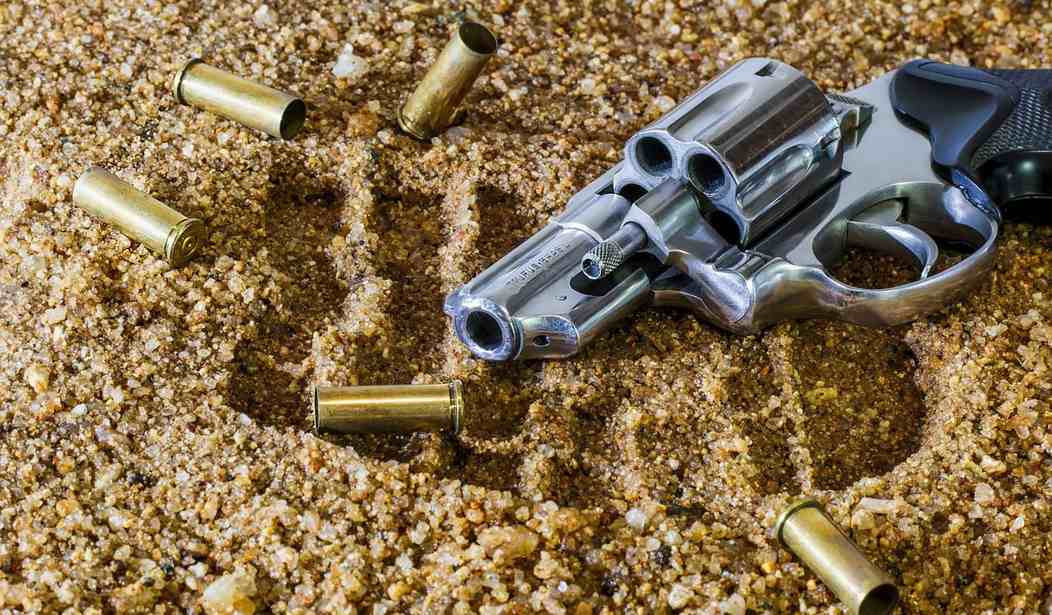When Nebraska adopted Constitutional Carry last year, critics claimed that it would lead to more violent crime. It's been a year since the law took effect, and as of October 1 the state's biggest city has seen a 5.9% decline in reported homicides.
That hasn't silenced critics of the permitless carry law, however. They're now trying to blame the statute for an officer-involved shooting in Omaha last weekend.
Metro community members call for more education on Nebraska's new gun law in the wake of a deadly officer-involved shooting.
The union representing Omaha police officers said it's seen an increase in people failing to disclose weapons when interacting with police.
The law, known as LB 77, allows people to conceal carry legally without a permit.
This means no training is required, something the Omaha Police Officers Association said is important to have.
During a meeting Wednesday, when community members responded to new details of the officer-involved shooting, some felt the new law is causing confusion.
"I think that convoluted the waters and created a real hugger-mugger for this community, specifically for a young Black man who are unfamiliar with gun laws," a community member said.
It may be the case that a public awareness campaign reminding lawful gun owners that they have to disclose they're carrying a firearm when interacting with police would be helpful, but it wasn't a "failure to disclose" that led to the police shooting of 22-year-old Steven Phipps last Saturday. It was the fact that he pointed a gun at police officers after running away from a traffic stop after he was pulled over for driving with expired plates.
The officers, identified as Noah Zendejas and Alex Atkinson, were driving a marked OPD cruisier and were wearing OPD uniforms. The Monte Carlo that Phipps was driving stopped in a vacant lot in the area.
Omaha police said Phipps got out of the Monte Carlo and stood near the open door of the vehicle. Phipps can be seen on body-worn camera standing near the car door.
Zendejas can be heard on body-worn camera audio giving three loud verbal commands for Phipps to stay in the vehicle. Omaha police said Atkinson also gave an additional verbal command.
In a voluntary interview after the incident, Zendejas said he could see the outline of a handgun in the front pocket of Phipps' hoodie. Phipps can be seen with a gun on body-worn camera stills.
Omaha police said Phipps ignored the officers' verbal commands and ran south, with both officers in pursuit.
Zendejas can be heard on body-worn camera audio, giving loud verbal commands for Phipps to stop. Authorities said Atkinson also gave three additional loud verbal commands to stop.
Omaha police said Phipps jumped over a chain link fence on the northern border of Metro Transit's North Omaha Transit Center.
Zendejas said he saw Phipps remove a handgun from the front of his body, and the gun was in Phipps' right hand. He said as Phipps went over the fence, the gun was pointed toward officers, which created an imminent threat.
Omaha police said Zendejas fired eight shots from his service weapon, hitting Phipps eight times, and then immediately gave medical attention to Phipps. Atkinson did not fire his service weapon.
Again, there may be some Omaha gun owners who aren't aware of the disclosure requirement that's a part of the permitless carry law, but it was Phipps' decision to run from the officers who pulled him over that led to his death. Phipps was given multiple commands to stay in his vehicle, but ignored those orders and took off. He ignored the commands to stop, instead drawing his gun while he was fleeing the cops. Even if Phipps inadvertently pointed the pistol at the officers who were chasing him, I think there's a reasonable argument to be made that Zendejas perceived an imminent threat to his safety and shot to end the threat to his life.
Should Nebraskans inform law enforcement that they're legally carrying a gun if they're pulled over? Absolutely. That's what the law requires. But they also shouldn't try to flee the scene with a gun in their hand. Constitutional Carry isn't to blame for Steven Phipps' death. Prosecutors may still decide that Zendejas should face charges for shooting Phipps, but it wasn't a failure to disclose that led to the shooting. It was Phipps' poor decision to run away that escalated things, and it was the gun pointed at officers that led to the fatal shots being fired.









Join the conversation as a VIP Member